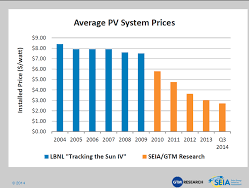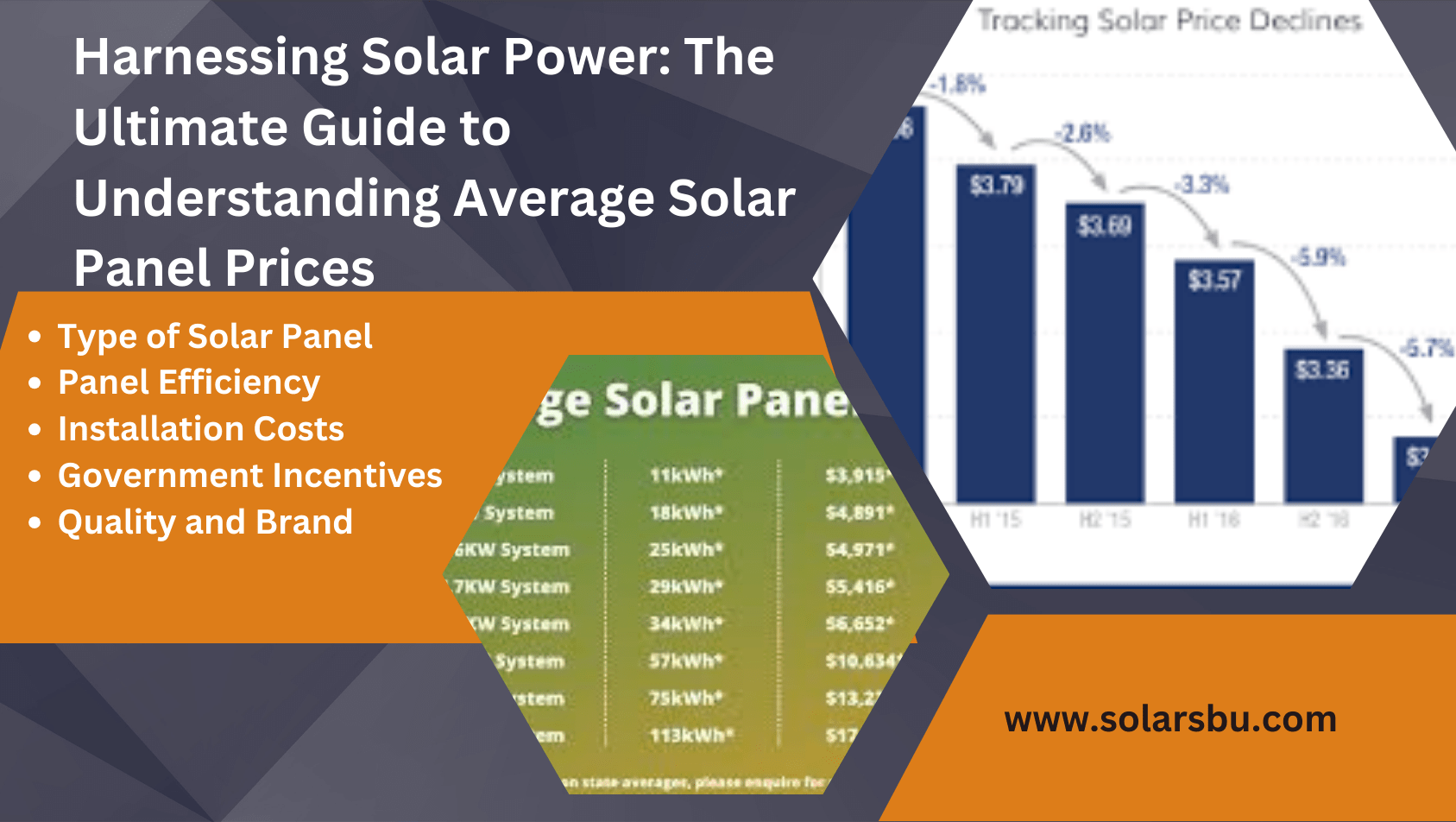Harnessing Solar Power: The Ultimate Guide to Understanding Average Solar Panel Prices
Solar power is taking the world by storm, offering an eco-friendly and sustainable energy solution that not only benefits the environment but also your wallet. If you’re considering making the switch to solar energy, one of the key factors you’re likely to be concerned about is the average price of solar panels. In this comprehensive guide, we delve deep into the intricacies of solar panel pricing, helping you make an informed decision about this renewable energy source.

Understanding the Basics of Solar Panels
Before we dive into the cost details, it’s essential to have a solid grasp of what solar panels are and how they work. Solar panels, also known as photovoltaic panels, are devices that capture sunlight and convert it into electricity. They consist of multiple solar cells made from semiconductor materials, such as silicon. When exposed to sunlight, these cells generate direct current (DC) electricity.
Factors Influencing Solar Panel Prices
Solar panel prices can vary significantly due to several factors. Understanding these variables is crucial when determining the cost of installing a solar system for your home or business.
1. Type of Solar Panel
There are various types of solar panels available on the market, each with its own set of characteristics and price points. The three most common types are monocrystalline, polycrystalline, and thin-film solar panels. Monocrystalline panels are known for their efficiency and higher costs, while polycrystalline panels offer a more budget-friendly option. Thin-film panels, on the other hand, are less efficient but often cheaper.
2. Panel Efficiency
The efficiency of a solar panel is a critical factor in its pricing. Higher efficiency panels can generate more electricity from the same amount of sunlight, but they tend to be more expensive upfront. However, they may provide better long-term value by producing more electricity over their lifespan.
3. Installation Costs
The cost of installing solar panels includes labor, equipment, and permits. Installation expenses can vary depending on your location, the complexity of the installation, and the size of the solar array. It’s essential to obtain multiple quotes from reputable solar installation companies to ensure you get a fair price.
4. Government Incentives
Government incentives and rebates can significantly impact the final cost of your solar panel system. Many countries and states offer financial incentives, tax credits, and rebates to encourage the adoption of solar energy. These incentives can help offset the initial investment.
5. Quality and Brand
The quality and reputation of the solar panel manufacturer can also influence the price. Established and reputable brands often charge higher prices for their products, but they may offer better warranties and long-term reliability.
Average Price of Solar Panels
Now that we’ve covered the factors that affect solar panel prices, let’s discuss the average cost you can expect to pay for a solar panel system in the United States, as of the most recent data available.
As of [insert latest year], the average price of solar panels in the United States ranges from $2.50 to $3.50 per watt. For a typical residential solar panel system with an average size of 6 kilowatts (kW), this translates to a total cost of approximately $15,000 to $21,000 before incentives.
It’s important to note that these prices can vary by state, with some regions offering lower installation costs due to favorable incentives and abundant sunlight. Additionally, larger systems may have a lower cost per watt, as economies of scale come into play.
Additional Costs to Consider
When calculating the total cost of your solar panel installation, it’s crucial to account for any additional expenses that may arise. These can include:
1. Inverter Costs
Solar inverters are essential components that convert the DC electricity generated by your panels into usable AC electricity for your home. The type and quality of the inverter you choose can affect the overall system cost.
2. Battery Storage
If you’re interested in storing excess energy for later use or for backup during power outages, you’ll need to invest in a battery storage system. Batteries can add a significant expense to your solar installation but provide peace of mind and energy independence.
3. Maintenance and Repairs
While solar panels are known for their durability and low maintenance requirements, occasional maintenance and repairs may be necessary. It’s wise to budget for these potential costs over the lifetime of your system.
Conclusion
In conclusion, understanding the average price of solar panels is a crucial step in making an informed decision about transitioning to solar energy. Factors such as the type of solar panel, efficiency, installation costs, government incentives, and quality all play a role in determining the final cost of your solar panel system.
you need to explore more then visit here

